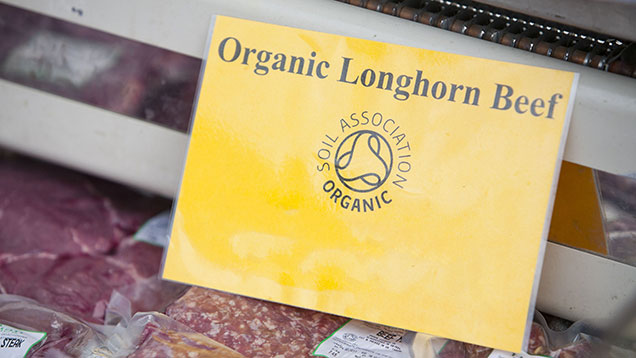Organic red meat farmers told to target high quality
 © Global Warming Images/REX
© Global Warming Images/REX Organic meat must sell itself on being top quality, farmers have been told.
Producers at the Soil Association’s livestock event in Winsham, Somerset, heard how consumers would not keep buying meat on its organic credentials alone.
Lyndon Edwards, who runs a farm shop on his Gloucestershire organic dairy farm, said keeping a consistent product was key.
“Those organic benefits are why people buy it the first time, but we want them to buy it again, again and again,” he said.
See also: Organic dairy farmers learn to manage supply
Mr Edwards, also vice-chairman of dairy co-op Omsco, said this strategy had worked with selling organic cheese to the US.
“The first time people buy it, it is organic, it is from Britain. We want them to come back because it is actually great cheese.”
Organic food and drink sales are beating the rest of the grocery market, rising 4% last year to £1.86bn.
But organic red meat sales suffered in 2014, as poultry surged ahead with 8.2% growth while beef, lamb and pork combined fell 6.1%.
Tim Leigh, managing director of the Organic Livestock Marketing Co-operative, said the sector was still not producing exactly what the market needed.
“We do find there are various categories of lamb and beef that do not fit into what is wanted out there,” he said.
“If you can get that right, you can forge longer-term contracts with abattoir-processors.”
Organic production is a small percentage of total red meat production, but figures are hard to gather.
About 35,000 cattle are slaughtered across the country each week, of which roughly 700 or 2% are organic.
Meadow Quality livestock marketing specialist Stuart Vile said plugging that information gap was important to building demand, particularly from retailers.
“Some of our beef farmers say if we produce organic, we must have a market because it is organic,” he said.
“We need to find out how many [animals] are being killed each week so we can build a picture of when is our greatest demand for beef and sheep and produce it when supermarkets want it.”
